Related Research Articles

Godey's Lady's Book, alternatively known as Godey's Magazine and Lady's Book, was an American women's magazine that was published in Philadelphia from 1830 to 1878. It was the most widely circulated magazine in the period before the Civil War. Its circulation rose from 70,000 in the 1840s to 150,000 in 1860. In the 1860s Godey's considered itself the "queen of monthlies". After several changes, it ceased publication in 1896.
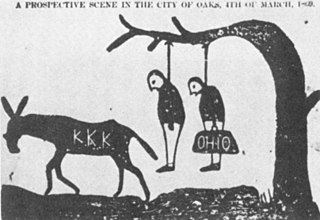
In United States history, the pejorative scalawag referred to white Southerners who supported Reconstruction policies and efforts after the conclusion of the American Civil War.
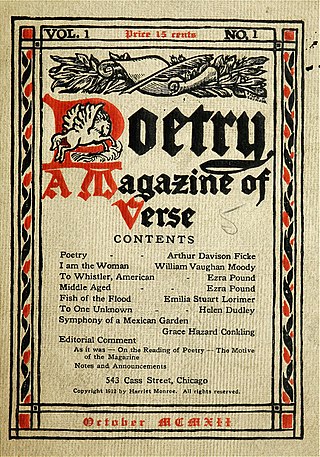
A literary magazine is a periodical devoted to literature in a broad sense. Literary magazines usually publish short stories, poetry, and essays, along with literary criticism, book reviews, biographical profiles of authors, interviews and letters. Literary magazines are often called literary journals, or little magazines, terms intended to contrast them with larger, commercial magazines.
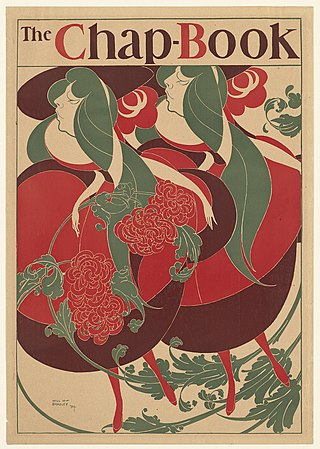
In the United States, a little magazine is a magazine genre consisting of "artistic work which for reasons of commercial expediency is not acceptable to the money-minded periodicals or presses", according to a 1942 study by Frederick J. Hoffman, a professor of English. While George Plimpton disagreed with the diminutive connotations of "little", the name "little magazine" is widely accepted for such magazines. A little magazine is not necessarily a literary magazine, because while the majority of such magazines are literary in nature, containing poetry and fiction, a significant proportion of such magazines are not. Some have encompassed the full range of the arts, and others have grown from zine roots.
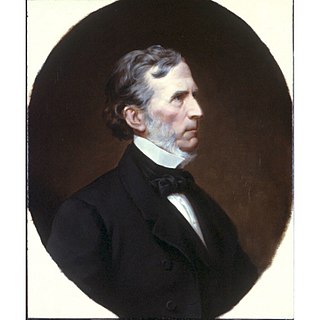
The Joint Committee on Reconstruction, also known as the Joint Committee of Fifteen, was a joint committee of the 39th United States Congress that played a major role in Reconstruction in the wake of the American Civil War. It was created to "inquire into the condition of the States which formed the so-called Confederate States of America, and report whether they, or any of them, are entitled to be represented in either house of Congress.”

The American Mercury was an American magazine published from 1924 to 1981. It was founded as the brainchild of H. L. Mencken and drama critic George Jean Nathan. The magazine featured writing by some of the most important writers in the United States through the 1920s and 1930s.
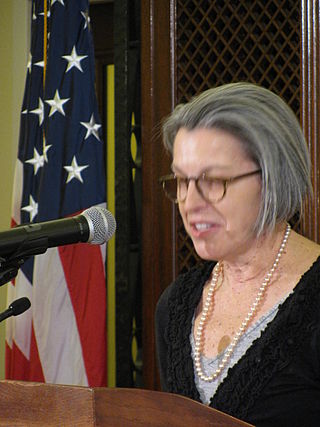
Claudia Emerson was an American poet. She won the 2006 Pulitzer Prize for her poetry collection Late Wife, and was named the Poet Laureate of Virginia by Governor Tim Kaine in 2008.
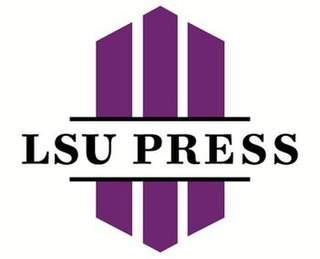
The Louisiana State University Press is a university press at Louisiana State University. Founded in 1935, it publishes works of scholarship as well as general interest books. LSU Press is a member of the Association of University Presses.

This is a selected bibliography of the main scholarly books and articles of Reconstruction, the period after the American Civil War, 1863–1877.
The Fortnightly Review was one of the most prominent and influential magazines in nineteenth-century England. It was founded in 1865 by Anthony Trollope, Frederic Harrison, Edward Spencer Beesly, and six others with an investment of £9,000; the first edition appeared on 15 May 1865. George Henry Lewes, the partner of George Eliot, was its first editor, followed by John Morley.
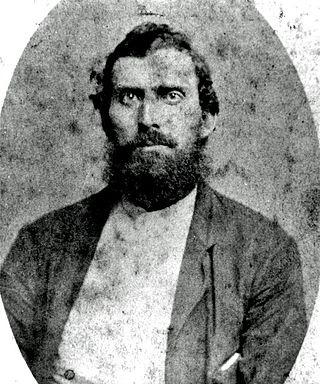
In the United States, Southern Unionists were white Southerners living in the Confederate States of America opposed to secession. Many fought for the Union during the Civil War. These people are also referred to as Southern Loyalists, Union Loyalists, or Lincoln's Loyalists. Pro-Confederates in the South derided them as "Tories". During Reconstruction, these terms were replaced by "scalawag", which covered all Southern whites who supported the Republican Party.

The Outlook (1870–1935) was a weekly magazine, published in New York City.
Terry Randolph Hummer is an American poet, critic, essayist, editor, and professor. His most recent books of poetry are After the Afterlife and the three linked volumes Ephemeron, Skandalon, and Eon. He has published poems in literary journals and magazines including The New Yorker, Harper's, Atlantic Monthly, The Literati Quarterly, Paris Review, and Georgia Review. His honors include a Guggenheim Fellowship inclusion in the 1995 edition of Best American Poetry, the Hanes Prize for Poetry, the Richard Wright Award for Literary Excellence, and three Pushcart Prizes.
The Negro Republican Party was one name used, in the period before the end of the civil rights movement, for a branch of the Republican Party in the Southern United States, particularly Kentucky, that was predominantly made up of African Americans.

Kelly Cherry was an American novelist, poet, essayist, professor, and literary critic and a former Poet Laureate of Virginia (2010–2012). She was the author of more than 30 books, including the poetry collections Songs for a Soviet Composer, Death and Transfiguration, Rising Venus and The Retreats of Thought. Her short fiction was reprinted in The Best American Short Stories, Prize Stories: The O. Henry Awards, The Pushcart Prize, and New Stories from the South, and won a number of awards.

The Nation is a progressive American monthly magazine that covers political and cultural news, opinion, and analysis. It was founded on July 6, 1865, as a successor to William Lloyd Garrison's The Liberator, an abolitionist newspaper that closed in 1865, after ratification of the Thirteenth Amendment to the United States Constitution. Thereafter, the magazine proceeded to a broader topic, The Nation. An important collaborator of the new magazine was its Literary Editor Wendell Phillips Garrison, son of William. He had at his disposal his father's vast network of contacts.
A History of American Magazines is a 5-volume set of nonfiction books by Frank Luther Mott. Volumes II and III of the set won the 1939 Pulitzer Prize for History. The first volume was published in 1930, and the fifth volume was published posthumously in 1968.

Catharine Webb Barber was an American teacher, newspaper editor, and author. She was born in Massachusetts, but came South, settling first in Georgia and afterward in Alabama. According to The Alabama Review, 1983,— "Establishing a bibliography of the works of Catharine W. Barber Towles McCoy is as difficult as establishing the facts of her life. Only a few of her numerous contributions to ephemeral Georgia periodicals can now definitely be known."
Caroline Howard Jervey was a 19th-century American author, poet, and teacher. Besides numerous poems and stories for the magazines, she published Vernon Grove and Helen Courtenay's Promise, two volumes of fiction, plus Poetry and Prose for the Young, as well as one book co-authored with her mother, Stories and Poems for children. Sometimes, Jervey used her mother's maiden name as a pen name. For fifteen years, she carried on a successful school in Charleston, South Carolina.
Caroline Aiken Jenkins Harris was an American writer and magazine editor from North Carolina.
References
- ↑ Spangler, Bes E. Stark (2001). "Literary magazines of the past". In Flora, Joseph M.; MacKethan, Lucinda Hardwick (eds.). The Companion to Southern Literature: Themes, Genres, Places, People, Movements, and Motifs. Southern Literary Studies. LSU Press. ISBN 9780807126929.
- ↑ Mott, Frank Luther. A History of American Magazines, 1865-1885. Vol. 3. The Belknap Press. pp. 46–47. ISBN 9780674395527.
- ↑ Okker, Patricia (2008). Our Sister Editors: Sarah J. Hale and the Tradition of Nineteenth-century American Women Editors. U of Georgia P. p. 191. ISBN 9780820332499.
- ↑ Turner Censer, Jane (2003). The Reconstruction of White Southern Womanhood, 1865–1895. LSU Press. p. 233. ISBN 9780807129210.